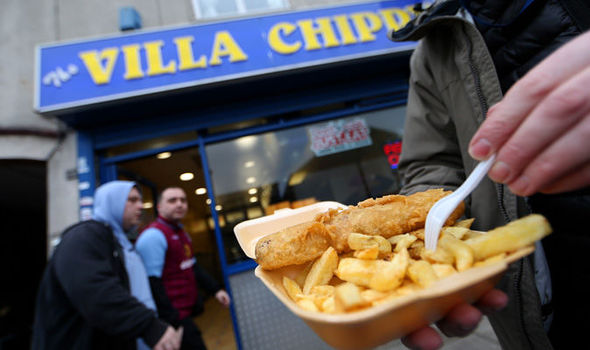-
Tips for becoming a good boxer - November 6, 2020
-
7 expert tips for making your hens night a memorable one - November 6, 2020
-
5 reasons to host your Christmas party on a cruise boat - November 6, 2020
-
What to do when you’re charged with a crime - November 6, 2020
-
Should you get one or multiple dogs? Here’s all you need to know - November 3, 2020
-
A Guide: How to Build Your Very Own Magic Mirror - February 14, 2019
-
Our Top Inspirational Baseball Stars - November 24, 2018
-
Five Tech Tools That Will Help You Turn Your Blog into a Business - November 24, 2018
-
How to Indulge on Vacation without Expanding Your Waist - November 9, 2018
-
5 Strategies for Businesses to Appeal to Today’s Increasingly Mobile-Crazed Customers - November 9, 2018
Cod back on the menu as fish stocks go swimmingly
The Marine Conservation Society says the fish – once in danger of extinction – can now be enjoyed “occasionally”.
Advertisement
Thanks to a period of sustained overfishing and changes in the environment, North Sea cod numbers fell dramatically during the 1980s.
The fishery, which collapsed in the 1980s as a result of overfishing, has risen above dangerously low levels for the first time after years of reduced fishing and efforts to avoid catching cod in mixed fisheries, the Marine Conservation Society (MCS) said.
Fisheries officer Samuel Stone said: “It’s fantastic to see this fishery finally off the red list”. They also warned that there were now nine endangered stocks – in the Celtic Sea, the Faroes Plateau, the Faroes Bank, the Irish Sea, The Kattegat, on the Norwegian Coast, the Rockall, the West of Scotland and the West Baltic – which now need some of the attention that North Sea cod has received.
The MCS, which ranks seafood on a traffic light system and a one to five rating, with one the most sustainable, has raised the fishery from “red” to “amber” with a level four recommendation.
“Efforts of recent years need to continue in order for the fishery to head towards the green end of the spectrum”.
Armstrong further said that it wasn’t just the North Sea cod that saw recovery as the majority of fish stocks of interest to Scottish fishermen are also in a healthy state now.
The fish is caught in Europe and then taken to China for processing, but when it returns it is hard to tell where it was caught.
Mr Stone said the fish needed to increase above precautionary levels.
The MCS called for changes in the management of fish populations, including investment in research and monitoring.
The new guidance follows a recovery in North Sea cod numbers and a planned increase in the European Union quotas for the fish.
“If there’s a legal quote and it’s being caught within the constraints of that, then of course we would agree that it’s legal, but we would not necessarily agree that it’s sustainable”.
Advertisement
As a nation of fish and chip lovers, this news will come as a welcome relief to the industry.




























